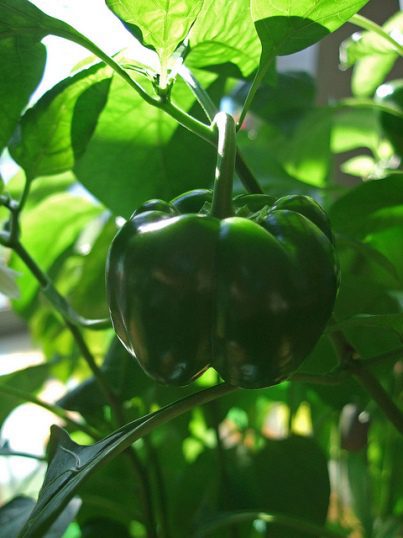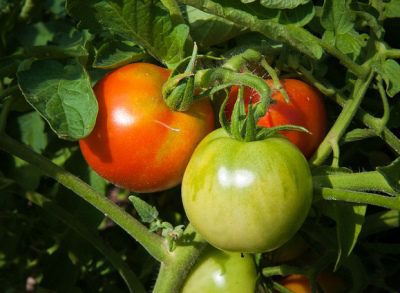A study finds that adding organic matter to garden soil has a major impact on yields. The research team at West Virginia University says it can boost harvests by 22 per cent!
A Work In Progress
Building soil isn’t quickly achieved; it happens over time. The researchers began their study in 1999 with 32 16’x24′ growing plots so they could see what happens when you add organic matter to the soil every year.
 Sixteen plots had high organic inputs and the other half got very little. The low input plots got treatment similar to conventional farm fields. They only added an annual cover crop of rye and vetch to the soil, followed by chemical fertilizer to make up soil fertility loss to crops.
Sixteen plots had high organic inputs and the other half got very little. The low input plots got treatment similar to conventional farm fields. They only added an annual cover crop of rye and vetch to the soil, followed by chemical fertilizer to make up soil fertility loss to crops.
The high input plots got treated with 10 tons per acre of dairy manure. The fall applications for both groups of plots also had mixed species hay mulch added every other year.
To begin, the team took measurements of existing organic matter in the top 6″ of soil in each plot. All the plots had 4.4% soil organic matter profiles.
Over the years, they planted green beans, lettuce, green peppers, tomatoes, and zucchini on a 4-year rotation schedule.
The Results
Five years into the study, the high input plots contained 6.4% organic matter in the soil. The low input conventional plots had only increased to 5.2%.
Ten years later, those low input plots weren’t much better with 5.4% organic matter content. Yet, the organic plots that also had dairy manure treatments measured out at a whopping 8.7% organic matter.
Published in the April issue of the scientific journal Hort Technology (vol. 27), the paper states that dairy manure added to green manure and hay mulch delivers significant economic returns. Low input plots had much lower yields.
- Peppers had the highest yield increase from all that extra organic matter in soil with 25% more fruits.
- Zucchini and green beans weren’t far behind with 24% bigger harvests.
- Tomatoes, however, didn’t increase as significantly with 9% higher yield. But this plant has a particular set of needs. If one thing is off, yield and fruit quality will drop.
Types Of Manure
Milking cow manure is rich in calcium, which no doubt assisted the tomatoes despite the fact that the soil showed low phosphorus and potassium levels.

Dairy manure is also important because it comes from lactating animals. Both biodynamic farming and a special preparation that allows growing plants in the desert insist that it is stronger than the manure from other animals.
Compost Buying Tips
Check the label on the bagged compost with manure you buy. If it’s bargain-priced, the bag probably contains unidentified cow manure, steer manure, chicken or poultry manure. Basically, anything but dairy manure.
Plain old NPK isn’t everything plants need to excel. Balanced fertility also includes micronutrients, enzymes, carbs, and more. Consider spending a little more on manure that contains dairy manure.
As this study shows you, not all organic matter is equal. If you really needed ‘accredited’ proof that the effort of working animal manures and other organic matter in soil was worth it – here it is. And it’s published in a leading science journal.
Images courtesy of Local Food Initiative, Futurilla, and USDA (respectively).
Updated by Catherine Sherriffs on 22/04/2020.
[/et_pb_text][/et_pb_column][/et_pb_row][et_pb_row][et_pb_column type=”4_4″][et_pb_comments _builder_version=”3.0.91″ show_avatar=”on” show_reply=”on” show_count=”off” background_layout=”light” header_font_size_tablet=”51″ header_line_height_tablet=”2″ custom_button=”off” button_icon_placement=”right” /][/et_pb_column][/et_pb_row][/et_pb_section]
Thanks. I like your blog.
thanks for sharing these information. Nice blog indeed
Nice one, God bless you.